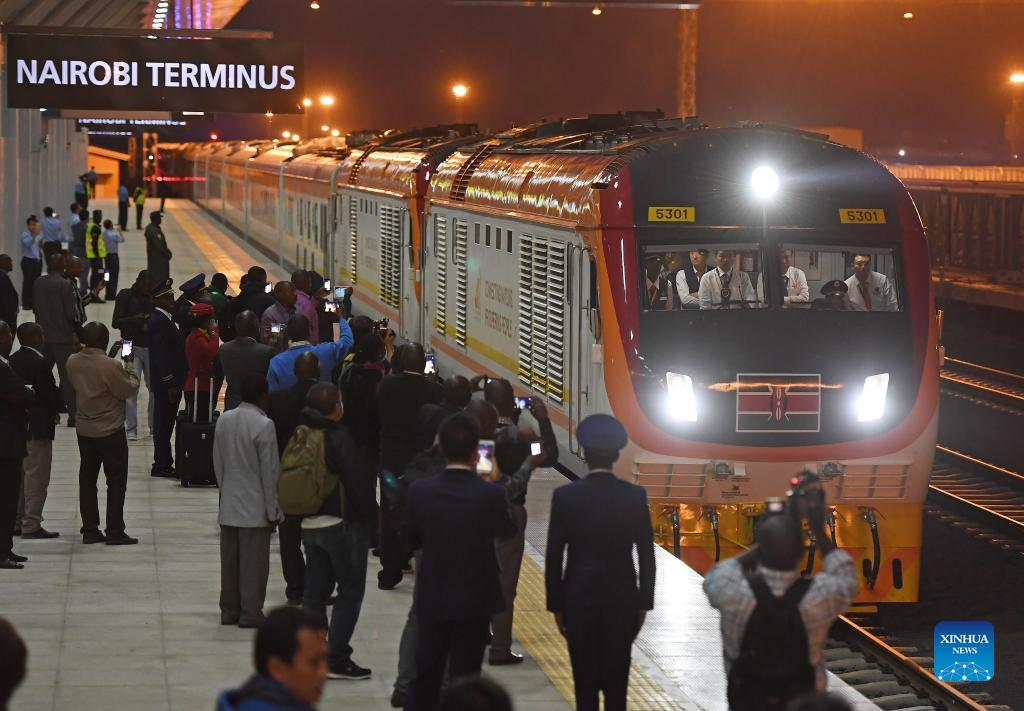China courts the Global South with infrastructure and trade deals, but Kenya may be having borrower’s remorse
A deal with the government of Angola could give Chinese-owned mines in Congo a railway to the Atlantic, but elsewhere in Africa, wariness about China-funded projects is growing.

While Germany is souring on Chinese infrastructure deals, they’ve also come under the microscope in two nations in Africa.
The government of Angola has signed a deal with Mota-Engil, a Portuguese infrastructure group partly owned by China Communications Construction Co. (CCCC), for the concession of rail services and logistical support for the Lobito Corridor in Angola.
The $450 million agreement, with an expected initial term of 30 years, will help facilitate a key route that will link mines in the Democratic Republic of Congo (DRC) — where China has multiple investments to extract critical materials, such as cobalt — to the port of Lobito on the Atlantic coast, giving greater access to international markets.
- Cobalt is a key ingredient in the lithium-ion batteries that power most electric vehicles.
- Angolan officials have previously talked up the possibility of a railway that would link Lobito with the port of Dar es Salaam in Tanzania. If built, and a 2015 Nikkei report suggested China would finance it, this would be the first transcontinental African transport route connecting the Atlantic and Indian oceans: Currently, there is not even a highway that makes it easy to traverse the continent from east to west or north to south.
Earlier this year, Shandong Port Group (SPG) and China International Trust Investment Corporation (CITIC) inked a deal worth about $100 million to operate a cargo terminal at the Lobito port, beating out another bid by the Philippines’ ICTSI.
- Another Chinese entity, the China Railway 20 Bureau Group Corporation, also helped build the 1,344-kilometer Benguela Railway, which connects Lobito to the city of Luau, bordering the DRC.
Not everything is copacetic
Just north of Tanzania, China’s controversial railway contract with Kenya is under review by the nation’s Supreme Court, following public outcry after new Kenyan president William Ruto partially disclosed documents outlining $3 billion worth of loans to state-run China Exim Bank for the Standard Gauge Railway (SGR).
- The details of the contract, which were closely guarded by Ruto’s predecessor, have raised concerns for being too favorable to Chinese lenders — especially as Kenya struggles to manage its mounting debt.
- Nairobi had declined to publicly release such information nearly 10 months ago, in fear of breaching non-disclosure agreements and straining relations with Beijing.
China news, weekly.
Sign up for The China Project’s weekly newsletter, our free roundup of the most important China stories.
Duty-free bonus for developing countries
Meanwhile, China will grant zero-tariff treatment to 98% of taxable items from 10 least-developed countries (LDC), according to a statement released by the Customs Tariff Commission of the State Council on Wednesday per Chinese state tabloid Global Times.
- The countries include Afghanistan, Benin, Burkina Faso, Guinea-Bissau, the Kingdom of Lesotho, Malawi, Sao Tome and Principe, Tanzania, Uganda, and Zambia.
- “This policy measure will gradually expand to all the least-developed countries that have established diplomatic ties with China,” the statement added per state news Xinhua.
- On September 1, an earlier zero-tariff agreement for 98% of taxable imports from 16 of the LDCs, including Togo, Djibouti, Laos, and Rwanda, came into force.






